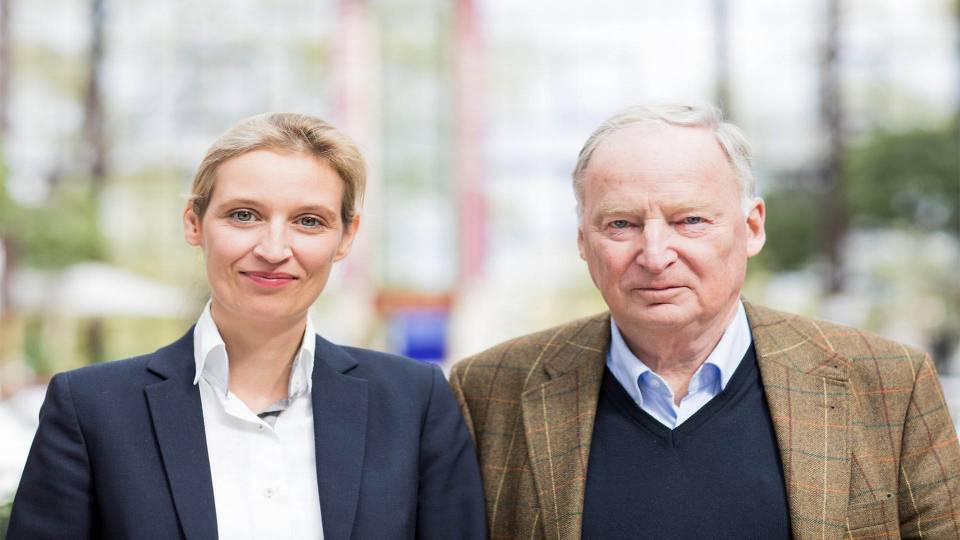German Voters put a Far-Right Party into Parliament for the First Time Since the Second World War
Angela Merkel’s party may have won the general election today, but 13% of the voting population said “No” to her refugee policy by choosing the right-wing nationalists Alternative for Germany (AfD). AfD co-head Alexander Gauland immediately told supporters his party would launch a parliamentary investigation into Merkel for her handling of the refugee crisis. The AfD would “hunt” Merkel and “take back our country and our people,” he said.
That more than 13% of German voters chose the anti-Islam, anti-refugee right wing party reflects the simmering resentment among the population two years after the height of the refugee crisis. More than one million of them were people who hadn’t voted in the last election (or weren’t old enough) and another million AfD supporters had last voted for Merkel’s Christian Democratic Union (CDU).
Why did they choose the AFD? An Infratest Dimap poll after the election found that half of those who voted for the party said they “understood better than the other parties how people feel.” More than a third found it good that the AfD wanted to reduce the influence of Islam in Germany and planned to limit the number of refugees entering the country. Almost all AfD supporters worry that German culture and way of life is under threat.
A Bertlesman Institute survey last summer found that German populists have only one main axe to grind: refugees. “If we hadn’t had this refugee crisis in Germany, then we wouldn’t be talking at all in Germany about populism and the AfD at this moment,” Robert Vehrkamp of the Bertelsmann Institute told Quartz in August. Germany likely will be talking about the AfD for the next four years. None of the other five parties in parliament will form a coalition with the party, so it be forced to act in opposition.
The party’s co-leaders appeal to different shades of the right-wing spectrum. Gauland, 76, was formerly a member of the CDU for 40 years, and preaches to the far-right. Alice Weidel, a 38-year old economist, appears more moderate. Weidel is gay—but voted against same-sex marriage in Germany—and lives in Switzerland with her partner and children.
The AfD campaigned squarely on anti-refugee sentiment, with posters saying: “Burqas? We like bikinis,” “New Germans? We can make them ourselves.” and pictures of pigs, captioned: “Islam doesn’t fit with our cuisine.”
Gauland said in a recent speech that Germany had “the right to be proud of the achievements of the German soldiers in two world wars.”
Hundreds of demonstrators protested in the streets outside the AfD’s party headquarters in Berlin Sunday night. In her speech after the polls closed, Merkel said, “We want to win back the AfD supporters, by listening to their worries, but mostly through good politics.”
Horst Seehofer, head of the Christian Social Union, the CDU’s sister party, blamed the CDU/CSU for having left “the right flank open,” so it could be exploited by the AfD.






















